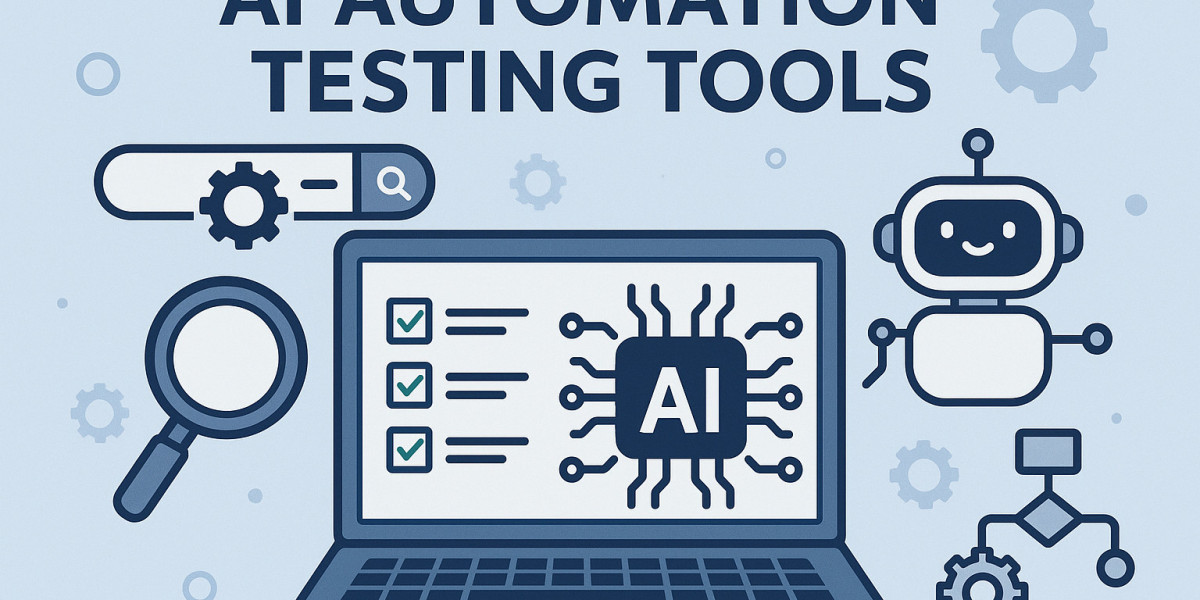Software testing has undergone a remarkable transformation in recent years. Gone are the days when traditional test automation relied solely on manually crafted scripts and frameworks. Nowadays, we’re seeing a significant shift towards leveraging Artificial Intelligence (AI) to enhance accuracy, speed up execution, and lighten the load on human testers. As companies embrace DevOps and continuous delivery, AI-driven automation tools have become indispensable for scaling quality engineering efforts.
While many enterprise AI testing tools come with a hefty price tag, a vibrant ecosystem of open source AI test automation tools has emerged. These tools empower teams to automatically generate tests, intelligently identify failures, and boost overall test coverage—all without the burden of expensive licenses.
In this guide, we’ll dive into the top open-source AI test automation tools, exploring how they function, their unique advantages, and how they fit into today’s QA workflows.
Why AI in Test Automation?
Before we jump into the tools, it’s crucial to grasp why AI is taking center stage in testing:
1. Auto-generation of test cases
AI models can analyze user interactions, logs, or API traffic to automatically create:
- Unit tests
- API tests
- Integration tests
- End-to-end tests
This automation eliminates the tedious task of repetitive test creation.
2. Intelligent failure detection
AI plays a key role in pinpointing:
- Flaky tests
- Root causes
- Patterns in failures
- Environmental inconsistencies
This capability reduces false positives and accelerates the debugging process.
3. Self-healing tests
AI-powered automation frameworks can automatically update broken selectors or workflows, easing the maintenance burden.
4. Improved coverage
Machine learning models excel at uncovering missing scenarios or edge cases that might slip through the cracks for human testers.
5. Faster feedback cycles
With smarter test orchestration and AI-driven optimization, you’ll receive results more quickly, enabling teams to deliver more reliably.
Top Open Source AI Test Automation Tools
Here’s an updated list of the most robust and relevant open-source AI testing tools for 2025. Each tool addresses a different layer of testing needs.
Top Open Source AI Test Automation Tools
Below is an updated list of the strongest and most relevant open-source AI testing tools in 2025. Each tool supports a different layer of the testing pyramid.
1. Keploy – AI Test Case Generator (Open Source)
Best for: API testing, integration testing, and automated test generation
GitHub Stars: Growing rapidly
Keploy is one of the most advanced and practical open-source AI testing tools. It generates test cases, mocks, and stubs automatically by capturing application traffic. Instead of writing tests manually, developers can simply run their application and Keploy will:
Record real requests and responses
Convert them into deterministic test cases
Generate mocks/stubs for external dependencies
Detect changes in behavior over time
Key Features
Automatic API + integration test generation
Deterministic, snapshot-based testing
Multi-language support (Node.js, Java, Go, Python)
Works in CI pipelines
Zero manual test writing required
Keploy is especially powerful for backend teams who want high coverage with minimal effort.
2. CodeceptJS – Open Source AI-Powered Test Automation
Best for: Web UI testing with AI-based auto-healing and test assistance
GitHub Stars: Highly active open-source project
CodeceptJS is a modern end-to-end testing framework that supports Playwright, WebDriver, Appium, and Puppeteer. In recent releases, it introduced AI-powered features that make it one of the strongest open-source AI automation tools for frontend testing.
The AI layer in CodeceptJS helps maintain tests automatically, reduces flakiness, and assists testers in writing better test flows.
Key Features
AI auto-healing selectors → fixes broken locators automatically
AI-assisted test generation → helps create steps based on natural language
Supports Playwright, WebDriver, Appium, and Puppeteer
Modular architecture with plugins and helpers
Strong debugging and reporting support
Works seamlessly in CI/CD pipelines
CodeceptJS is an excellent choice for UI automation teams looking for AI-driven stability without relying on heavy, paid enterprise solutions.
3. AI-Enhanced Selenium Frameworks (Community Projects)
Best for: Teams already using Selenium who want AI benefits
Although Selenium itself is not an AI tool, the community has built several AI-powered wrappers and libraries around it, such as:
Healenium, which enables self-healing locators
SeleniumBase, which includes smart waits and AI-assisted element detection
AutonomIQ-inspired open-source add-ons
These tools help reduce the brittleness of Selenium tests.
Key Features
Auto locator healing
Dynamic waits
Smarter element identification
Reduced test flakiness
They are great for extending existing Selenium setups without migrating to new tools.
4. TestGPT – LLM-Based Test Generation
Best for: Unit test generation using GPT-like models
TestGPT is an open-source project built around LLMs to generate:
Unit tests
Integration tests
Edge case scenarios
Documentation-based tests
Developers provide the source code or documentation, and TestGPT generates test cases in languages like Python, JavaScript, and Java.
Key Features
LLM-assisted code understanding
Automatic test creation
Developer-friendly CLI
Works with local or remote LLMs
While still evolving, TestGPT is becoming popular among engineering teams exploring AI coding workflows.
5. Kite + AI Code Testing Plugins
Best for: Developers wanting inline AI suggestions for tests
Open-source AI programming assistants such as Kite (community forks) support:
Auto-suggestions for test functions
Automatic completion for test assertions
Inline understanding of context
These tools reduce time spent writing repetitive test code.
Key Features
Context-aware AI suggestions
Static analysis + ML
Works with VS Code, PyCharm
Helpful for developers who prefer writing tests manually but want to speed up the process.
6. k6 + AI Extensions for Test Generation (Community Tools)
Best for: Performance testing with AI insights
k6 is primarily a performance testing tool, but AI-driven extensions and community integrations allow:
Auto-suggested test scripts
Intelligent load pattern generation
Predictive failure detection
This enhances performance engineering with data-driven intelligence.
Key Features
AI-generated load test scenarios
Analytics + anomaly detection
Easy scripting (JavaScript-based)
Ideal for teams scaling reliability testing.
Benefits of Using Open Source AI Tools
1. Zero licensing cost
Perfect for startups, individual developers, and open-source projects.
2. Community-driven improvements
Open-source ecosystems grow fast due to active contributors.
3. Full transparency
Teams can inspect source code, modify it, or even extend tools internally.
4. Easy integration
Most tools integrate smoothly with:
GitHub Actions
Jenkins
GitLab CI
Kubernetes
Docker
5. Reduced testing time
AI reduces manual effort dramatically, saving time and cost.
How to Choose the Right AI Test Automation Tool
Selecting the right tool depends on your needs:
✔ If you want automatic API + integration test generation
→ Use Keploy
✔ If you want NLP-based functional testing
→ Go for CodeceptJS
✔ If you want self-healing UI tests
→ Use Healenium or SeleniumBase
✔ If you want AI-generated unit tests
→ Try TestGPT
✔ If you want AI-assisted performance testing
→ Use k6 with AI extensions
Think about your tech stack, team skillset, and testing layer before choosing.
Future of AI Test Automation (2025 and Beyond)
As LLMs and machine learning models evolve, open-source testing tools will soon offer:
Fully autonomous test suites
100% auto-generated regression packs
Real-time defect prediction
Continuous self-updating tests
Full observability-driven testing
The combination of open-source tooling + AI will make high-quality software development more accessible than ever.
Conclusion
Open-source AI test automation tools are reshaping how modern teams test their software. From generating test cases automatically to healing flaky tests and predicting failures, these tools significantly reduce human effort and improve overall software reliability.
Tools like Keploy, CodeceptJS, Healenium, and TestGPT bring AI-driven power to different layers of the testing lifecycle. Whether you're testing APIs, UI, performance, or unit-level code, there is now a powerful open-source AI tool available for every need.
As the software ecosystem continues to evolve, embracing AI-powered open-source testing early gives engineering teams a major advantage—faster releases, fewer bugs, and much stronger reliability.







